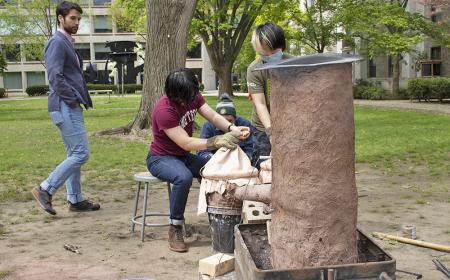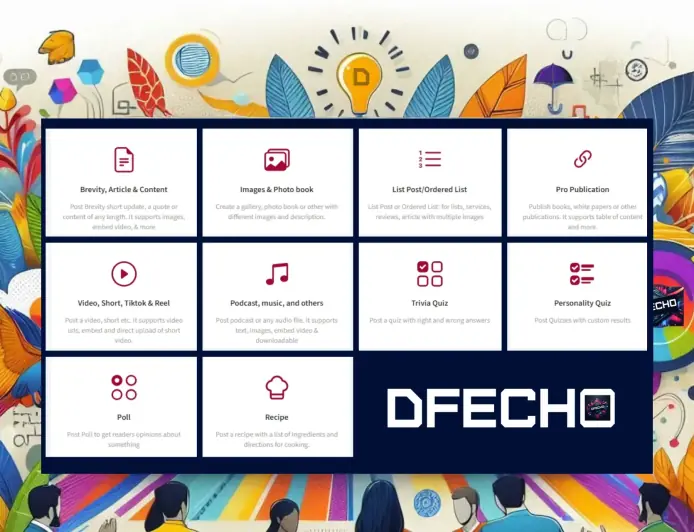Achievements and Challenges of Virtual Reality in Education
Education is the backbone of a thriving society. Civilizations have focused on the transfer of knowledge since the beginning of time. As educators are always looking for new ways to transfer knowledge more effectively, quickly, and easily, they have turned to virtual reality.
Life in the digital era offers an opportunity to enable learning using technology. Virtual technology has the potential to transform how educational content gets delivered. It is already making great strides across the globe.
If you want to know about the achievements made and the challenges that remain, this post is just for you. It sheds light on what you can adopt and the challenges that you will encounter when you go virtual. Let’s dive in.
Virtual Reality Achievements in Education
Firstly, we will cover the good. There is a lot that you can learn from the achievements made by virtual reality in the field of education.
1. Virtual Tools for Real-World Learning
The virtual tools that are available today allow for real-world learning. It means that students from across the globe can come together using VR to solve real-world issues. Many universities are collaborating in different countries to create a more inclusive environment.
One of the ways virtual tools are being used is for offering language learning. Today, students can learn English virtually from just about any part of the world. It is possible to use virtual tools to create the perfect learning environment no matter where students might be.
Since people are more likely to remember something they experienced as opposed to reading, hearing, or seeing it, according to the Cone of Experience, virtual reality can help boost retention.
The theory was proven correct by a study conducted by Penn State University. It was found that students who utilized immersive virtual reality were able to accomplish tasks much faster as compared to students that relied on traditional computer programs.
2. An Improved Online Classroom
Diving deeper into the achievements made by virtual reality in education, another notable achievement that is observable is an improved online classroom. This has been mostly possible due to the use of an avatar.
Social VR applications help tackle the monotony of online courses. They allow remote students to feel connected. Online coursework can rely on such applications to expand the curricula and boost engagement. It shows just how far virtual reality has come.
The problem in the past has been that students fail to build memories during online classes. The classes might seem like nothing more than data being fed in the dullest way possible. However, virtual reality can provide students with plenty of opportunities to socialize using interesting avatars.
3. Virtual Field Trips
A great achievement made by virtual reality is that it allows for virtual field trips to be taken by classrooms. Some of the biggest universities are offering VR field trips to students for them to experience something new.
The best thing about virtual field trips is that once they have been developed, they can be distributed on a massive scale. Discovery Education has offered millions of students the opportunity to take a virtual field trip aboard an airship.
Similarly, Google Expeditions offers thousands of educational tours to help teach students through immersive-media.
A study conducted by researchers at Stanford looked at the impact of VR field trips and found that participants that had explored virtual space were able to form a deeper cognitive association with science-based content and had an easier time retaining and recall cause and effects.
4. Art Education
One of the biggest achievements made by virtual reality has been in art education. Today, museums across the globe have gone global. This provides art enthusiasts with the chance to visit virtual galleries and look at paintings virtually.
For instance, the Kremer Museum offers students the chance to look at 74 paintings of Flemish and Dutch Old Masters. The museum experience has come to virtual reality so that everyone can see paintings just like how they would in real life.
5. Tutoring
Finally, virtual reality is also connecting tutors with students in ways never imagined before. Pupils that require extra instruction can receive the help they need using Oculus headsets. Thus, they will be able to study for the SAT, biology, chemistry, mathematics, and so on.
Tutors can hold virtual classrooms and bring students together. They can draw on a virtual blackboard and more. Virtual tutoring allows students to get the help they need to excel in subjects that they might be struggling with without hassle. It shows just how far online education has come.
Challenges Faced By Virtual Reality Education
Although virtual reality in education has brought with it many achievements, certain challenges need to be addressed.
1. Developing More Content
One of the biggest challenges faced by virtual reality in education is the lack of content. The fact is that developing more content can be very expensive, and not every educational institute has the means to hire a software development company to help them produce content.
Since pre-undergraduate education does not have huge funds, it can be difficult to get startups involved. This is why it is important to get investors and businesses involved to fund the development of more content.
2. Availability of VR Headsets
Although many students can afford to purchase a VR headset, there are still some students that do not have the money to buy a VR headset. This prevents them from taking advantage of VR-based learning. The challenge that needs to be handled is providing VR headsets to every student.
3. Cyber-Sickness
Cyber-sickness is a real thing that many people do not even consider. It is similar to motion sickness and can prevent students from learning. The good news is that cyber-sickness is diminishing as technology improves.
However, to ensure that students acclimate to the sensation, more investment is needed. Educators have to work together with companies to create the perfect VR classroom.
There is no denying that virtual reality can play a big role in the future of education. From offering virtual-reality tools to virtual tutoring, it offers amazing potential. However, certain challenges need to be addressed, such as the need for more content, cost and availability of VR headsets, and cyber-sickness.
What's Your Reaction?
 Like
0
Like
0
 Dislike
0
Dislike
0
 Love
0
Love
0
 Funny
0
Funny
0
 Angry
0
Angry
0
 Sad
0
Sad
0
 Wow
0
Wow
0











